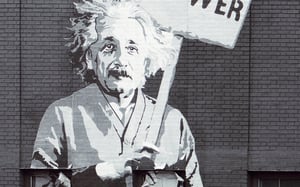Before 1915, depictions of the cosmos leaned more toward the subject of art history than science. However, in 1915, Einstein produced a new theory of gravitation that was able to generate descriptions of entire universes.
In this lecture entitled, “The Origin and Evolution of Universes,” Prof. John D. Barrow of the University of Cambridge explains how Einstein’s theory of gravitation transformed the way we think about the universe today.
This lecture is from the 2017 Society of Catholic Scientists Conference. To view the lecture in its entirety, click here.

